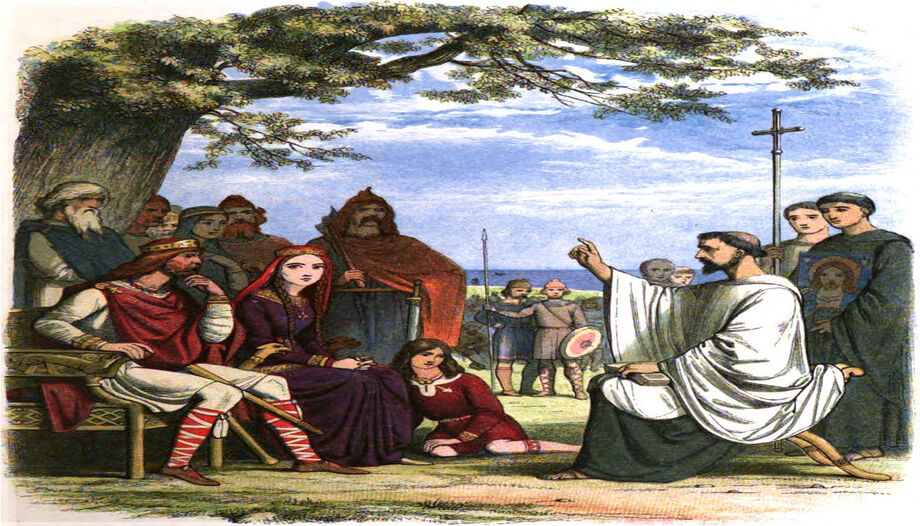While Augustine was prior of the Benedictine monastery of St. Andrew in Rome, he was sent by Pope St. Gregory the Great, at the head of about forty monks, to evangelizing England. He landed at Thanet and sent word to King Etelbert of Kent. The king, who had married Bertha, a Christian princess of the Frankish royal family, allowed them to settle in Canterbury, the capital of the kingdom, and gave them freedom to preach. Soon the king was converted, baptized in 597.
The Pope rejoiced at the news and sent new collaborators and the appointment of Augustine as archbishop primate of England. At the same time, he told him not to be proud of the successes and honor of the high office. Following the Pope's directions, St. Augustine erected other episcopal sees, London and Rochester, and consecrated Melito and Justus as bishops. The missionary saint died in 604 and was buried in Canterbury in the church that bears his name.
Four English priests and two Korean women
Four diocesan priests are also being celebrated today martyrs Englishmen, Edmund Duke, Richard Hill, John Hogg and Richard Holiday, hanged and quartered at Dryburne, near Durham, on May 27, 1590, during the reign of Elizabeth I.
On May 27, the liturgy also commemorates Saints Barbara Kim and Barbara Yi, Korean martyrs. The two women, because they were Christians, were arrested and imprisoned together in Seoul. They refused to apostatize despite torture and died in prison in 1839.







